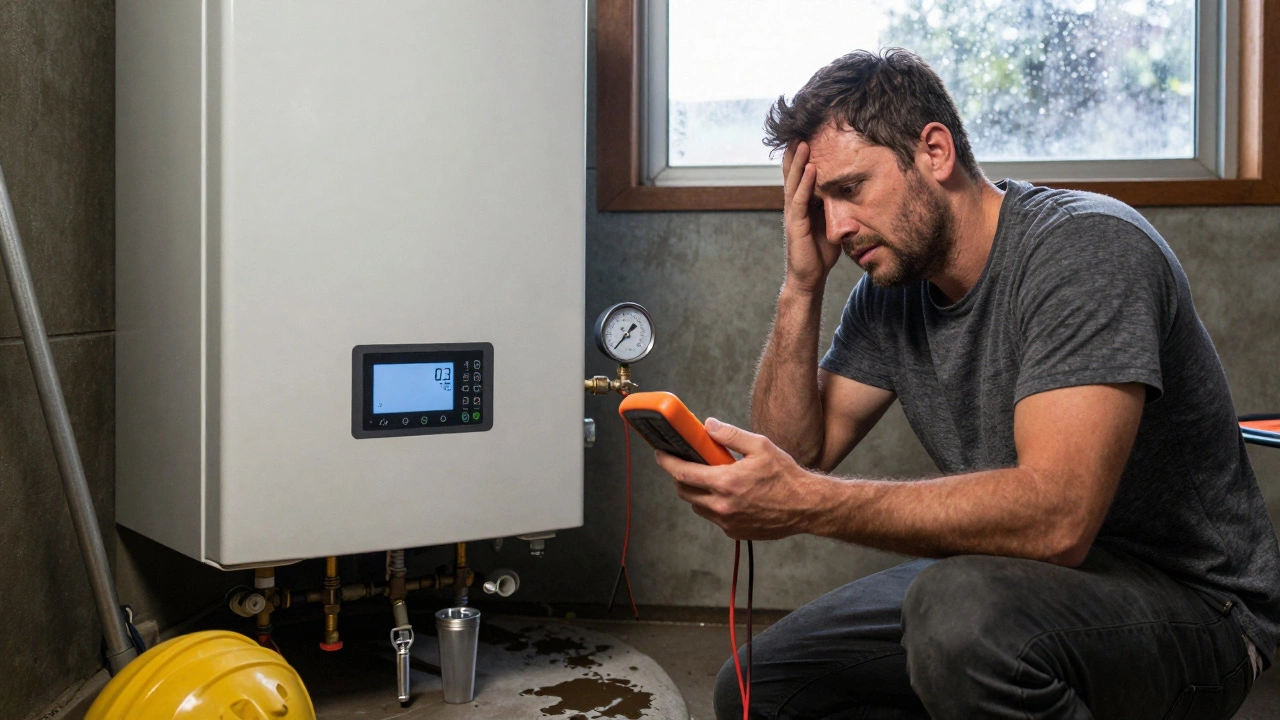If your boiler stops heating, makes strange noises, or throws error codes, you’re probably looking at a broken boiler. Ignoring the problem can leave you in the cold and lead to costly repairs. Below you’ll find the most common warning signs, quick steps you can safely take, and when it’s time to call a professional.
First, pay attention to how the boiler behaves. A sudden loss of heat, water leaking from pipes, or a puff of smoke are clear red flags. You might also notice a boost in your energy bill – an inefficient boiler works harder and uses more power.
Other tell‑tale signs include:
If any of these show up, turn off the boiler and move on to the next step.
Before you call a plumber, try a safe reset. Many modern boilers have a reset button on the control panel. Press it, wait a minute, then switch the boiler back on. This can clear minor electronic glitches.
Turning the boiler off and on repeatedly can damage the system, especially if you do it dozens of times a day. Use the reset only once or twice – if the problem persists, shut it down and let a qualified engineer take a look.
While you wait for a professional, you can do a few simple checks:
These steps can sometimes solve a minor hiccup and save you a call-out fee.
Most straightforward fixes – like replacing a faulty valve or cleaning a blocked heat exchanger – can be done in a couple of hours. Bigger jobs, such as swapping out the main gas valve or re‑pressurising the system, may take half a day.
If the boiler is old (over 12‑15 years) and needs many parts replaced, the repair time can stretch to a full day. In those cases, weigh the cost of repair against the price of a new, energy‑efficient boiler.
Regular maintenance is the cheapest way to avoid a sudden breakdown. Schedule an annual service with a certified engineer – they’ll clean the heat exchanger, check the gas pressure, and test safety devices.
Also, keep the area around the boiler clear of dust and debris. A clean environment helps the fan and pumps run smoother, reducing wear and tear.
In short, spotting trouble early, doing a safe reset, and staying on top of yearly servicing can keep your boiler humming for years. When in doubt, always call a qualified professional – a broken boiler is not worth risking your safety.
Posted by
Orin Trask
0 Comments

If your boiler stops working, don't panic. Know who to call, what to check first, and how to avoid dangerous mistakes. This guide covers emergency steps, licensed technicians, common fixes, and how to choose a new boiler in New Zealand.
read morePosted by
Orin Trask
0 Comments

Your boiler is down, and the house is freezing. Find out how long you can safely wait, potential risks, and what to do when left with a broken boiler.
read morePosted by
Orin Trask
0 Comments

When your boiler stops working, staying warm becomes a top priority, especially during colder months. This guide explores practical and efficient ways to heat your home using alternative methods and tools. Learn how to maximize existing heat, leverage alternative heat sources, and prepare for emergency situations. Dive into a series of tips to maintain comfort and safety until the boiler is back in operation.
read more